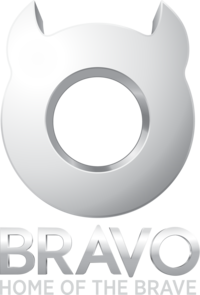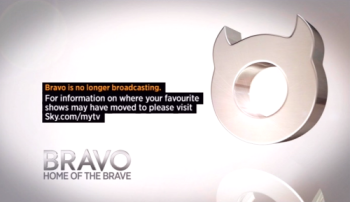
Telewest was a cable internet, broadband internet, telephone supplier and cable television provider in the United Kingdom. It was listed on the London Stock Exchange, and was also once a constituent of the FTSE 100 Index.
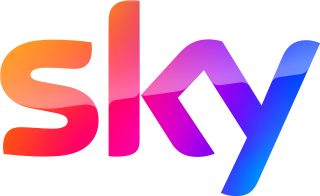
Sky UK Limited, doing business as Sky is a British broadcaster and telecommunications company that provides television, internet, fixed line and mobile telephone services to consumers and businesses in the United Kingdom. It is a subsidiary of Sky Group and, from 2018 onwards, part of Comcast. It is the UK's largest pay-TV broadcaster, with 12.7 million customers as of the end of 2019 for its digital satellite TV platform. Sky's flagship products are Sky Q and the internet-based Sky Glass, and its flagship channels are Sky Showcase, Sky Max, and Sky Atlantic.

Gold is a British pay television channel from the UKTV network that was launched in late 1992 as UK Gold before it was rebranded UKTV Gold in 2004. In 2008, it was split into current flagship channel Gold and miscellaneous channel, W, with classic comedy based programming now airing on Gold, non-crime drama and entertainment programming airing on W, and quiz shows and more high-brow comedy airing on Dave. It shows repeats of classic programming from the BBC, ITV and other broadcasters. Every December, from 2015 until 2018, the channel was temporarily renamed Christmas Gold. This has since been discontinued, although the channel still continues to broadcast Christmas comedy.
Sky One was a British pay television channel operated and owned by Sky Group. Originally launched on 26 April 1982 as Satellite Television, it was Europe's first satellite and non-terrestrial channel. From 31 July 1989, it became Sky One and broadcast exclusively in the United Kingdom and Ireland as British Sky Broadcasting's flagship channel. It existed until 1 September 2021, when it closed down as part of a restructuring with its EPG position taken by Sky Showcase and much of its content library moved to Sky Max.

UKTV Media Limited, trading as UKTV, is a British multi-channel broadcaster, which, since 2019, has been wholly owned by BBC Studios, a commercial subsidiary of the BBC. It was formed on 1 November 1992 through a joint venture between the BBC and Thames Television. It is one of the United Kingdom's largest television companies.

Living TV Group was a British television consortium originally called Flextech before becoming a subsidiary of British Sky Broadcasting, with Challenge still broadcasting.

FTN was a television channel owned by Virgin Media Television. The channel's main purpose was to exist as a highlights network for Flextech to showcase Freeview viewers the programmes from their paid channels, although it also aired its own programming.

Challenge is a British free-to-air television channel owned by Sky, a division of Comcast. The channel mostly transmits game shows from the UK and around the world, with some original productions.

TNA Impact!, is an American professional wrestling television program produced by the American promotion Total Nonstop Action Wrestling (TNA) that debuted on June 4, 2004. The series currently airs on AXS TV in the United States, owned by parent company Anthem Sports & Entertainment.
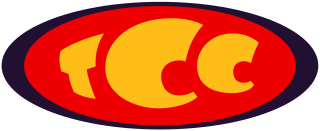
The Children's Channel, also known as TCC, was a British-based pan-European children's television channel in Europe, the Middle East and Africa, which was owned by Flextech in London, England, UK. It began broadcasting on the original Eutelsat satellite on 1 September 1984.

Bravo 2 was a British television channel.

Sky Deutschland GmbH, branded as Sky, is a German media company that operates a direct broadcast satellite Pay TV platform in Germany, Austria and Switzerland. It provides a collection of basic and premium digital subscription television channels of different categories via satellite and cable television.
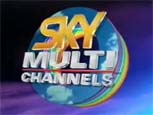
Sky Multichannels was a package of analogue television services offered by BSkyB on the Astra satellites at 19.2° east from 1 September 1993 to 27 September 2001, which started off with 15 channels before expanding to over 40.

Channel One was a British free-to-air television channel owned and operated by Living TV Group. The channel was launched on 1 October 2007 at 21:00 on Freeview, Virgin Media and Sky as Virgin1, replacing Ftn. The channel broadcast 24 hours on cable, satellite and Freeview; a one-hour time-shift, Channel One +1, broadcast on cable and satellite.

TNA Epics is a professional wrestling television program for Total Nonstop Action Wrestling that aired on Spike in the United States and Bravo in the United Kingdom. The show was hosted by Mick Foley and showed matches and events from the history much like WWE Vintage. In December 2009, Dixie Carter announced in an interview that Epics would be debuting on Spike in January 2010. The second season began on Thursday, January 14, 2010.
Home Video Channel (HVC) was a British cable television channel that began operating in 1985, broadcasting low-budget films between 8:00 p.m. and midnight. Film genres included horror, action, adventure, science fiction, and erotica. In 1992, a second channel, The Adult Channel, was launched by HVC's owner, Home Video Channel Limited (HVCL). It broadcast erotic films and softcore pornography.
This is a timeline of the history of Sky Television.
This is a timeline of UKTV, a television company that broadcasts seven television channels in the United Kingdom.
Sky Living was a British pay television channel owned and operated by Sky. The channel's programming was aimed mainly at women and young adults. It originally launched as UK Living.
This is a timeline of cable television in the United Kingdom.
